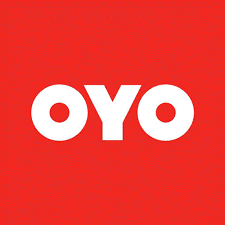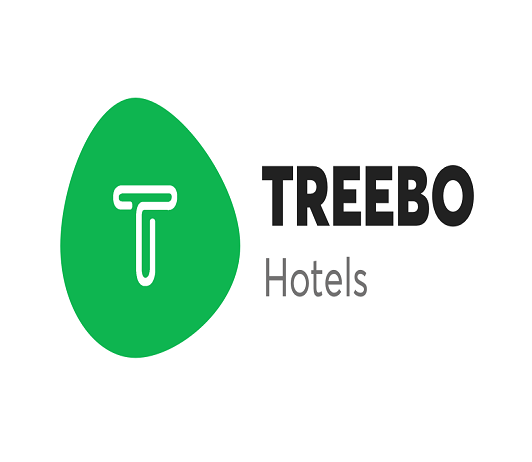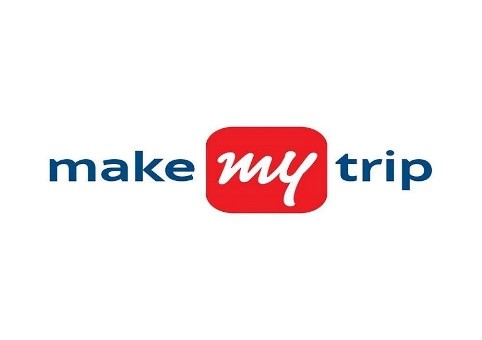So, the “wide parity” clauses in OTA have been banned in India too, finally!
The Competition Commission of India (CCI/Commission), vide its order dated 19.10.2022 has , after a detailed investigation and inquiry , held MakeMyTrip India Pvt. Ltd (MMT) guilty of abusing its dominant position in the market for online intermediation services for booking of hotels in India through its policy of wide price/rate parity and room available parity with its hotel partners , whereby the hotel partners are restrained from offering better rates to other Online Travel Agents (OTAs) or to offer better rates on their own websites besides deep discounting the end customers and exclusive arrangements with Oravel Stays Private Limited (“OYO”) thereby denying market access through delisting of Casa2 Stays Pvt. Ltd (“FabHotels”), Ruptub Solutions Pvt. Ltd. (“Treebo”) and the independent hotels from its online platform, in violation of section 4 (2) (a) (i) and section 4(2)(c) of the Competition Act, 2002 ( the Act) . Similarly, MMT was also found to have indulged in misrepresentation by displaying “sold out” label to rooms which were not allocated /blocked on MMT-Go platforms till December 2020. Further, CCI also found the exclusive commercial arrangement between MMT and OYO, which led to delisting of FabHotels and Treebo and other independent hotels which were availing the services of these franchisors as refusal to deal and anti-competitive (vertical) agreement in violation of Section 3(4) read with Section 3(1) of the Act.
The case was initiated based on the information filed in case No. 14 of 2019 by Federation of Hotel & Restaurant Association of India (FHRAI) against MMT, Goibibo (“MMT-Go”) and OYO. Further Commission vide its order dated 05.02.2020 in response to application dated 23.01.2020 by FabHotels permitted FabHotels to take part in the proceedings as an informant. Subsequently another information was filed by Treebo in Case No. 01 of 2020 against MMT and OYO with similar allegation therefore, Commission vide its order dated 24.02.2020 clubbed both the matters and directed DG to submitted a consolidated investigation report.
The detailed analysis of the CCI above initial prima facie orders directing investigation and clubbing both cases can be read in my earlier blog here.
Allegations
Price Parity/Room parity: MMT-Go through its agreement with hotel partners had imposed price parity and room parity clauses whereby the hotels are not allowed to sell their rooms to any other Online Travel Agency (“OTA”) or even on its own website at a price below which is being offered on MMT-Go. Further Hotels cannot refuse to provide rooms on MMT-Go at any given point of time if the rooms are being provided on any other platforms.
Predatory pricing/deep discounting: It was alleged by the informants that MMT-Go has been indulging into predatory price by offering the hotel rooms at less than the ‘average room rate’. It is been further alleged that MMT-Go has been offering deep discounts to the end customers which the other OTA are not able to give and hence forcing them to leave the market.
Anti-competitive Agreement with OYO (Delisting/denial of market access): It has been also alleged that MMT-Go and OYO have entered into confidential and exclusive commercial agreement wherein MMT-Go has agreed to give preferential treatment to OYO leading to denial of market access to treebo and FabHotels by delisting them on it.
It was also alleged that once an hotel is registered with MMT-Go it has no option to exit from the relationship and even if such request are made, instead of being removed, it show as ‘no rooms available’ or ‘sold out’ which severely affect the business of the hotel.
DG Investigation
DG for the purpose of investigation delineated the relevant market as “market for online intermediation services for booking hotels in India” and held MMT-Go to be dominant in the relevant market.
For the purpose of investigating the impact of alleged price and room parity clauses, the DG collected information from 16 hotels and 5 hotel chains and concluded that price and room parity clause created barrier to new entrant, besides driving existing competitors out of market. Further the imposition of price parity and deep discounting have even affected the international players in the market.
Additionally, DG did not found such practices leading to any improvements in production or distribution of Goods or provision of services; or promotion of technical, scientific and economic development by means of production or distribution of Goods or provision of services. Considering the above, the DG concluded the rate parity and room parity clause to be in contravention of Section 4(2)(a)(i) read with Section 4(1) of the Act. Further DG also concluded that MMT-Go has engaged in deep discounting and predatory pricing thereby contravening Section 4(2)(a)(ii) of the Act.
Further on the issue of delisting FabHotels and Treebo on MMT-Go platform, due to the OYO and MMT-Go exclusive agreement, DG held that, the commercial arrangement/agreement between MMT-Go and OYO restricted the access to the MMT-Go portals, thereby preventing OYO’s competitors FabHotels and Treebo from being able to effectively compete with OYO. Therefore, the said agreement resulted in a foreclosure of competition by hindering entry into the market in contravention of Section 3(4)(d) read with Sec 3(1) of the Act.
Finally on the issue of misrepresentation DG opined that if any consumer makes any search for any properties on MMT-Go’s platform and finds the same to ‘sold out’, there is a little possibility that such consumer will try to find the same property on other OTAs which can not only have adverse impact on the business of the concerned hotel but it will also restrict consumer’s fair choice to choose hotels. DG with the above reasoning concluded that by showing such misleading information and creating information asymmetry in the market, the conduct of MMT-Go has the potential to deny market access to the concerned hotels.
CCI findings
Relevant Market
This is probably the first case in which Commission had Got the chance to delineate the relevant market in a multi-side platform market. This case is important because of the fact that it is sets the jurisprudence for the future cases for multisided and platform market.
The Commission noted that the case relates to the conduct of an enterprise that operates an intermediation service through a two-sided platform which connects two distinct user groups i.e., end consumer and hotels/hoteliers and since the alleged/impugned conducts relates to the contractual arrangements between hotels and online booking platforms, the prime focus ought to be on the hotels’ side of the market, though the consumer side perspective can supplement this treading. Thus, the starting point for defining the scope of relevant market would be the service that the enterprise under scrutiny, i.e. MMT-Go, offers to hotels. All such platforms, or online travel agencies (OTAs), that offer these services as a one-stop-shop, are substitutable from the hotels’ perspective and, thus, form part of the relevant market.
Commission after a detailed analysis held that online and offline mode of hotel booking do not form a part of same relevant market. Further even in the online segment, OTAs constitute a separate relevant product market and is not substitutable with other mode of online booking like through hotels own website, meta search like TrivaGo, trip advisor Facebook etc. Thus, based on the above analysis the Commission delineated the relevant market as the market for online intermediation services for booking of hotels in India.
Dominance
On the issue of dominance, the Commission agreed with the DG and held that total number of stayed room nights (“RN”) provides the most appropriate metrics to gauge the comparative strength of MMT-Go based on the market share. Further after considering the data of market share based on the number of room nights booked through the OTA (data was granted confidentiality and hence was redacted in the final order) held that it is very unlikely that any of the players in the relevant market were posing any competitive constraints on MMT-Go.
The Commission also considered other factors such dependence of consumers on the enterprise, entry barriers, network effect and the commercial arrangement of MMT-Go and OYO to conclude that MMT-Go was in dominant position in the relevant market during the period of 2017-2020.
Abuse of Dominant position
Parity obligation [Price/Rate Parity and Room Availability Parity]
The Commission at the outset noted that there is no dis-agreement between the parties as regards the existence of such obligations in the agreements between hotels and MMT-Go. It was also noted that rate parity is not the only clause imposed through the agreement rather parity obligation exist in conjunction with room parity, deep discounting strategy and exclusivity conditions, therefore in order to access the reinforcing impact of these clauses, these has to be evaluated simultaneously rather sequentially.
Commission further noted that MMT-Go imposes price parity clause on hotel partners whereby a hotel partner are restrained from offering lower prices to the other OTAs and even on their own websites than the price offered to MMT-Go. It also imposes room parity clause, which ensured that at any given point of time, the number of hotel rooms offered for sale at MMT-Go platform would not be lesser than any other OTAs. The Commission held that such clause reduce the incentives for other OTAs to compete with MMT-GO by offering lower Commission rates, in return for a better rate per room nights, thereby softening price competition and decrease innovation. Further, room parity clause ensures that a hotel partner cannot provide higher rooms to any other OTA even if they get better terms and conditions.
Additionally, MMT-Go also enters into exclusive agreements with some hotel partners which restricts them from listing their rooms on other OTA platforms. Thus, parity obligations coupled with exclusivity conditions further accentuate the adverse impact created market.
Based on the above Commission concluded that the deep discounts, exclusivity condition and parity conditions, in conjunction, creates an ecosystem that reinforces MMT-Go’s dominant position in the relevant market. Firstly, it helps MMT-Go to retain and further increase its network of users/travelers, who would increasingly use the platform for availing the best deals. Secondly, it impedes the competitive process between OTAs by limiting the competitive levers/instruments at the disposal of other portals who, for instance, cannot get better prices from hotels by offering lower commission rates. Thirdly, the consequent adverse effect on sale of rooms through other platforms/channels and their user bases, further accentuates the dependence of hotels on MMT-Go as well as the bargaining power imbalance that already exists between MMT-Go and its hotel partners. Fourthly, the increased sales through MMT-Go may lead to unilaterally determined higher commissions charged by it, giving it the ability to also pass on discounts which are funded through these commissions, which may adversely impact the prices at which the hotels rooms are being offered to end-consumers. While it may be argued that discounts are beneficial for the end consumers, the net impact may be adverse when seen in light of higher commissions funding the higher discounts leading to overall higher prices on which the discounts are applied.
Predatory pricing
On the issue of predatory pricing the Commission disagreed with the findings of the DG and held that it is difficult to rely on the assumptions on the basis of which the costs are categorized in the investigation report. The costs are segmented into variables and fixed without any proper explanations and reasons. Further it was also noted by the Commission that there was explanation for treating certain cost as fixed for MMT but have been taken as variable for Go-ibibo like electricity, communications, insurance, legal and professional, repair and maintenance, rates and taxes etc. Thus in view of the above the Commission did not accept the simplistic categorization done by the DG and concluded that the findings of the predation is not substantiated by the data and evidence on record.
Misrepresentation of information
With respect to the allegation of misrepresentation whereby MMT-Go on its platform showed the hotels/property as sold out while the same was only delisted and the hotels had room availability, the Commission noted that, since MMT-Go is dominant in the relevant market the consumer heavily rely on its results. The Commission further held that any such misrepresentation effect the perspective of the consumer and may dissuade the consumer from searching on alternate channels for the same hotel under the assumption that the hotel is sold out.
Further such misrepresentation also lowers the number of rooms booking of the hotels and reduces the competition among the budget hotels registered on different OTAs, thereby leading to exclusion of such hotels. Further such misrepresentation by a dominant enterprise also amounts to exploitative abuse.
Delisting/Denial of Market Access
The Commission noted that there exists a vertical agreement between OYO and MMT-Go pursuant to which FabHotels and Treebo were delisted from the MMT-Go platform in June and April 2018 respectively. The Commission held that getting delisted from MMT-Go, which is dominant in the relevant market , have foreclosed an important channel of distribution for FabHotels, Treebo and those independent budget hotels which were reaching the MMT-Go through them. Further the impugned exclusion has also affected those budget hotels which were availing some logistic support from them, while operating independent hotels. The arrangement between MMT-Go and OYO has left these budget hotels with no option but to disassociate with these franchisees and necessarily engage with OYO, if they wish to avail franchisee services or any other logistics support from a consumer-recognised franchise chain inter alia for quality improvement or branding purposes, without losing the visibility of their properties on the largest online booking platform in the country.
Commission also noted that delisting from dominant online channel of distribution sought to create an artificial advantage for OYO and OYO’s hotel partners against Treebo’s and FabHotels’ hotel partners which was not based on competition on merits but was an obvious consequence of delisting. This created an ecosystem of incentives for OYO’s hotel partners to continue their association with it not merely based on OYO’s merits but its association with MMT-Go and an ecosystem of disincentives for Treebo and FabHotels’ hotel partners to curtail the association and jump the Bandwagon, not attributable to demerits of Treebo or FabHotels but their dissociation with MMT-Go. Based on the above the Commission held that the impugned arrangement between OYO and MMT-Go led to foreclosing the market in the form of denial of market access, for FabHotels and Treebo as also for the independent budget hotels which were availing some logistic support from these players.
Based on the above reasoning the Commission concluded that delisting FabHotels and Treebo as well as the budget hotels which were availing some logistic support from them, in 2018 was anticompetitive within the meaning of Section 3(4)(d) read with Section 3(1) of the Act.
Penalty
Accordingly for the market correction, the Commission directed MMT-Go to: (a) remove the price and room parity clauses from the agreement with hotel partners; (b) remove exclusivity conditions from the agreement with hotel partners; (c) provide access to its platform on fair, transparent, and non- discriminatory basis to hotel partners by formulating the terms and conditions of listing of hotel partners in an objective manner; (d) notify hotel partners about the aforesaid modifications; and (e) provide transparent disclosure on its platform regarding the non- availability of properties on its platform, either on account of termination of the contractual arrangement with the hotel partners or by virtue of exclusion of quota allocated to MMT-Go by hotel partners.
The CCI also imposed a penalty at the rate of 5% of the relevant turnover amounting to: (a) INR 2,23,48,00,000 (Indian Rupees two hundred twenty three crore forty eight lakh) on MMT-Go for engaging in anti- competitive practices, in violation of Sections 3(4) and 4 of the Act; and (b) INR 1,68,88,00,00012 (Indian Rupees one hundred sixty eight crore eighty eight lakh) on OYO for engaging in anti- competitive practices, in violation of Section 3(4) of the Act.
COMMENT: This is the first case in India in which “wide parity” clause in online hotel bookings has been examined and now prohibited. The order was on expected lines as was commented in my earlier blog dated 01 March 2020, wherein I had expressed a reservation with the too narrow market definition adopted by CCI. In this final order, CCI has firmly stood with its initial market definition and has refused to consider the market data from actual consumers, painstakingly developed by the MMT GO sponsored Kadaence Consumer Report as against lack of such deep and statistical analysis by DG, which, is surely going to be point of challenge in the appeal to be filed by MMT-GO. However, unlike that of the DG investigation report, CCI’s analysis on each allegation is robust and not merely based on precedents of similar decisions on wide parity in European jurisprudence, which is borne out of its decision of not approving the finding of predatory pricing. Being the maiden case, its outcome at the appellate stage will be interesting to watch out for. ____________________________________________________________________________________












